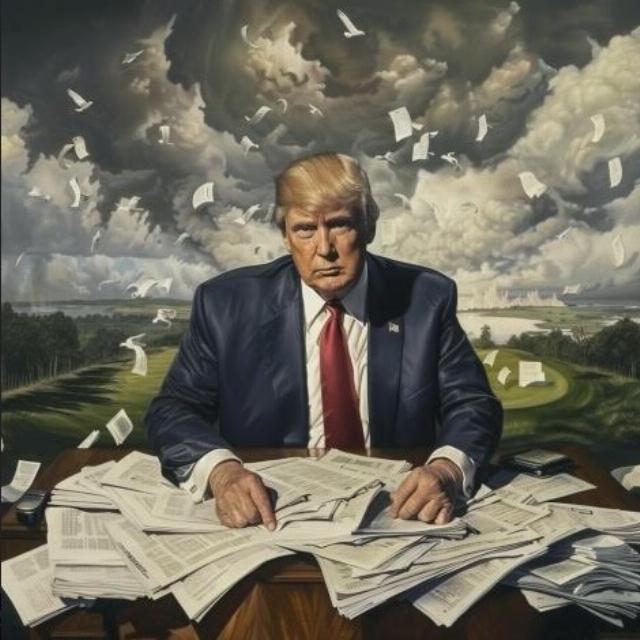The crux of the Mar-a-Lago jury instruction dispute: property interest and authorization
Prior to the mid-1970s, neither the Espionage Act, federal records law, nor executive orders on classified information did away with presidents’ “complete dominion and control over their presidential papers.” Nixon’s papers were seized not by executive branch regulation or at the whim of his successor, but pursuant to Congress’s exercise of the federal eminent domain power in the Presidential Recordings and Materials Preservation Act of 1974. Congress asserted public ownership of “presidential records” starting on January 20, 1981 in § 2202 of the Presidential Records Act. Without the PRA, all presidential papers and “the right to possess, use and dispose of” them would still belong to former presidents.
Jack Smith’s prosecutors consider a property interest to have no bearing on “unauthorized possession” under 18 U.S.C. § 793(e). While acknowledging that diaries are former presidents’ personal property under the PRA, they insist that a former president is not allowed to retain those diaries if he puts national defense information in them the way Reagan did. They maintain “the Court should not infer from silence on Congress’s part an intention to disturb the framework governing the handling of classified information that was in place at the time the PRA was passed.”
If the PRA changed nothing and 793(e) currently allows prosecution of former presidents whose retention of personal property runs afoul of internal executive branch rules, a property interest would likewise have been an unavailing defense to “unauthorized possession” before the PRA. The Special Counsel presupposes that 793(e) liability attached in the pre-PRA era of “complete dominion and control” to ex-presidents whose storage, handling, or use of their national defense-related presidential papers derogated from executive branch policies. The Special Counsel sees executive orders on classified information prevailing over the rights inhering in personal property.
The restrictions Congress imposed in the PRA did not abrogate presidents’ property interest in material excluded from the definition of “presidential records.” “Personal records” are not the only documentary material falling outside that definition. § 2201(2)(B)(iv) of the PRA excludes “extra copies of documents produced only for convenience of reference, when such copies are clearly so identified.” The defense proposed this month that the jury be instructed not to convict on any Espionage Act count should the document in question be a copy.
Whatever can lawfully go into a burn bag on the spot is not a “record.” If it is not a “record,” the PRA does not wrest ownership from a former president. Press revelations, Hur’s Report, and accounts of former staff and officials indicate that destruction of classified materials is a normal practice at the White House and the Naval Observatory.
Though a private individual’s property interest in national defense information may be a rarity, once it is established, seizure by the Executive should be contingent on a statutory eminent domain authorization, like Sections 5, 11, and 13 of the Atomic Energy Act of 1946. Congress did not include such authorization in Section 10 of that Act, which created the “restricted data” designation, nor in Section 793 of the Espionage Act four years later.

Image generated by AI.
Read More: The crux of the Mar-a-Lago jury instruction dispute: property interest and authorization

